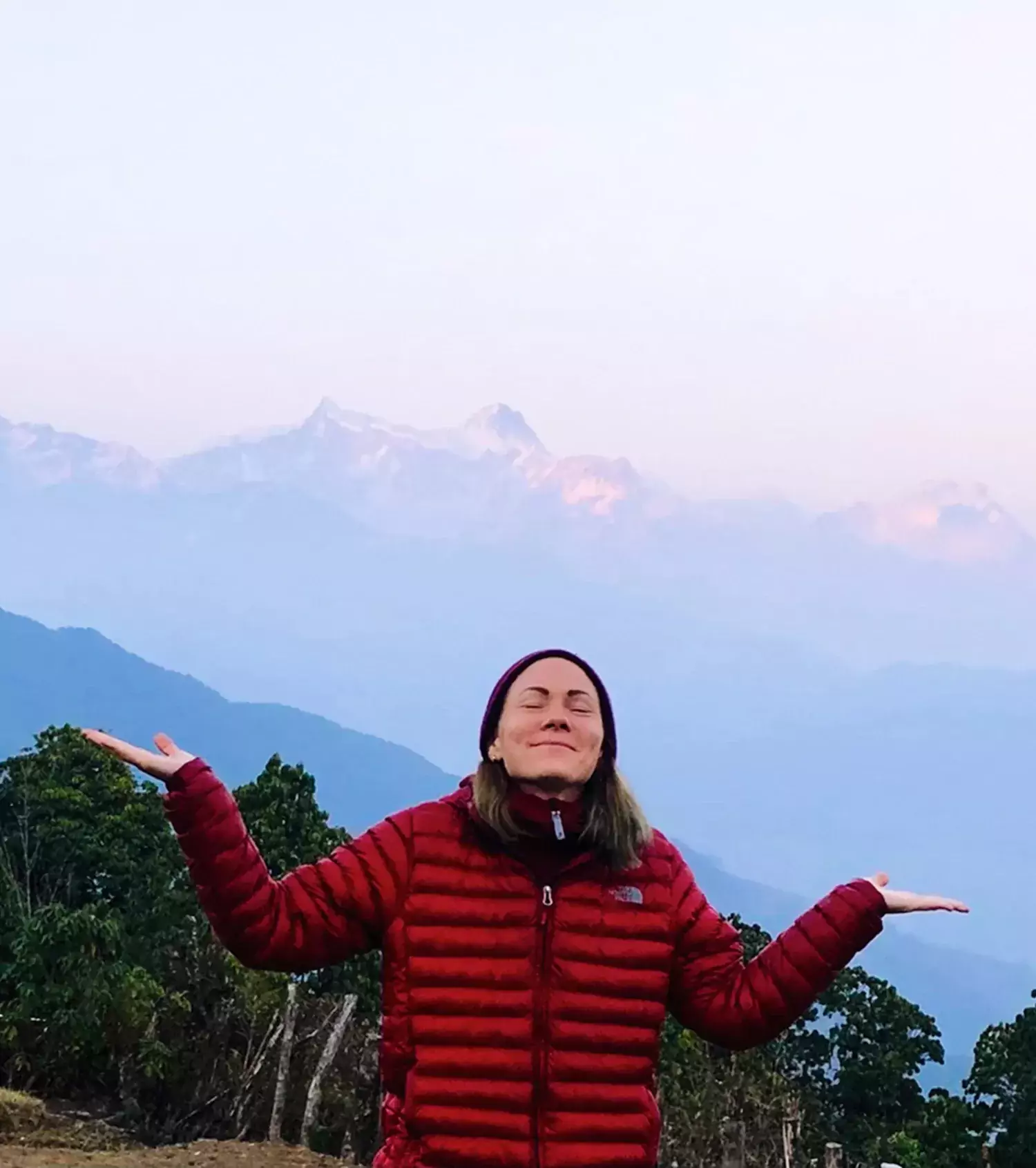Ida Bäckström suddenly lost her hearing
Ida Bäckström suddenly lost her hearing - first in the right ear and then in the left. Now she hears with the help of cochlear implants. This article is part of an in-depth feature from KI's popular science magazine Medicinsk Vetenskap.
Name: Ida Bäckström
Age: 36 years.
Profession: Yoga instructor and organising trekking and meditation trips, mainly to Nepal. Also working with sound healing, which is common in Nepal and involves trying to create well-being through harmonious sounds. Has authored the book “Vad sa du?” (What did you say?) about what it is like to have a hearing impairment.

Text: Annika Lund for the magazine Medicinsk Vetenskap nr 2, 2023 | Spotlight on hearing loss
"When I was 23, I suddenly lost the hearing in my right ear. It felt like my ear was covered and all I could hear was a loud beeping sound. Doctors told me my hearing would return, but that did not happen. I was working as a hairdresser at the time and the environment of background music, hair dryers and customer conversations became difficult. I was not doing well.
Then, which I have been told is extremely rare, I suddenly lost hearing in the other ear as well.
Then I plunged into a depression. I felt very lonely and isolated.
I had a quick assessment and a first cochlear implant after only four months. With good support from hearing healthcare sector, I learned to understand sounds and speech quite quickly.
At the same time, I turned to yoga and trained as an instructor. I also made a trip to Nepal, where we hiked around the base camp of Mount Everest. During that trip, life fell back into place for me again. When I stood on the top of Kala Patthar with a view of Mount Everest, I felt that life can be good again. The trip to Nepal and the trek to that peak became a symbol of an inner journey for me.
When I came home, I got my second cochlear implant and it made a big difference. It felt like I got in touch with that side of my body again.
Now I am working with organising trekking trips to Nepal. Traveling with the implants is fine, but I am often in places where there is no electricity for charging, so I have to plan ahead with power banks. At night I put the external units in a drying unit to protect them from humidity.
And at night I am completely deaf. I have to remind the people around me of that, because I would not wake up in case of a fire alarm, for example, but must be woken up.
Since having cochlear implants, I have also started working with sound therapy. I have bought some Tibetan singing bowls in Nepal and give classes. Everyone experiences the vibrations differently, it is powerful.”
